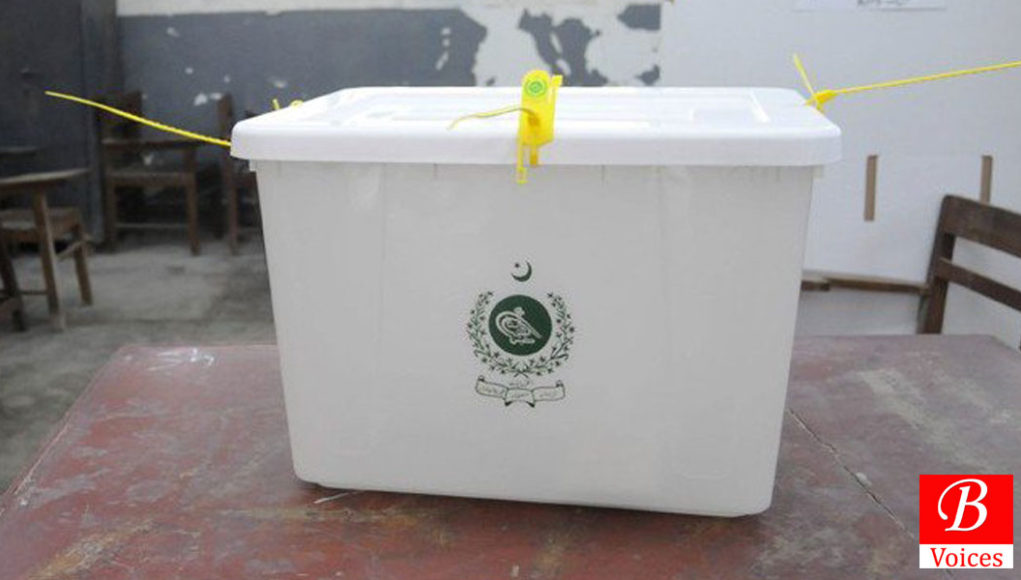The political atmosphere in Balochistan is charged once again due to the upcoming Senate election. The ruling coalition and opposition parties have begun their politicking to make maximum gains in the upcoming elections on March 3. In Balochistan, 12 Senate seats will be up for grabs. Seven of these seats are for the general category, two each for women and technocrats, and one for religious monitories. So far, 40 candidates have submitted applications to the Election Commission of Pakistan (ECP) to contest Senate elections from Balochistan.
The main issue around the Senate election campaign in Balochistan is the entry of candidates from outside of the province. The most prominent case is of Sitara Ayaz who was elected to the Senate in 2015 on an Awami National Party (ANP) ticket from Khyber Pakhtunkhwa (KP). In October 2019, she was expelled from ANP for using the party for personal interests and creating rifts. She recently joined Balochistan Awami Party (BAP), which has allotted her a ticket to contest Senate elections from Balochistan on a general seat.
This move by BAP has attracted widespread condemnation from political circles across the province. Senate seats are reserved for provinces for the purpose of giving representation to the people of that province in the Upper House of the parliament. If a person from a different province is elected senator from Balochistan, it defeats the purpose of provincial allocation of Senate seats. Interestingly, there is an obscure group of trolls on Twitter, with bot-like features, that attack anyone who criticizes the nomination of Sitara Ayaz from Balochistan.
However, Chief Minister Jam Kamal, who is also the president of BAP, is adamantly defending this decision. He argued while talking to local media, that PML-N and PPP have elected people from other provinces in Sindh and Punjab and hence the decision of allotting a ticket to Sitara Ayaz was also appropriate. What he failed to understand was that what the PPP and the PML-N did was also wrong and two wrongs do not make a right.
Another interesting issue relating to Senate elections in Balochistan is the nomination of Islamabad-based businessmen Abdul Qadir who claims to have an unverified link to Balochistan. He used to be a member of BAP but the Pakistan Tehreek-e-Insaf (PTI) allotted him a ticket on a general seat from Balochistan. This also resulted in a barrage of criticism from within the PTI. Organizers of all four regions of the PTI in Balochistan called Abdul Qadir a parachuter, a term used for a person avoiding the usual route of politics by using money and connections.
After facing this criticism, the PTI withdrew its ticket from Abdul Qadir but surprisingly BAP announced to allot him a ticket instead. This decision has left all political pundits in Balochistan puzzled about the importance of Abdul Qadir and why both the PTI and BAP were willing to ignore all opposition to allot him a ticket?
The PTI issued a ticket to Syed Zahoor Agha, a veteran party worker, instead of Abdul Qadir. However, the local leadership of the party has not accepted this decision. Sardar Khan Rind, son of PTI’s parliamentary leader Sardar Yar Muhammad Rind, has also submitted his nomination papers as an independent candidate. This development has generated rumors that PTI members in the Balochistan Assembly might vote for their parliamentary leader’s son instead of the candidate nominated by the party leadership in Islamabad.
In the past, Balochistan has been infamous for massive horse-trading in Senate elections. Given the few votes required to get elected from Balochistan, the price per vote has reportedly reached tens of millions in past elections. This trend is expected to continue and members will vote out of party discipline if elections are held under secret ballot. However, if the PTI government succeeds in adopting open ballot for Senate elections then horse-trading will be avoided altogether in Balochistan.
The results of the Senate elections will be very interesting given the political dynamics of the Balochistan Assembly. Currently, the ruling coalition has 41 members and the opposition has 24 members in 65-member provincial assembly. The 12 contested seats of the Senate can be secured by the ruling coalition and opposition in different proportions in two possible scenarios. Both of these scenarios are based on the assumption that there will not be any major disruption of the political order, unlike the 2018 elections where an overwhelming majority of PML-N dissidents joined forces to form BAP overnight.
The first scenario is that ruling coalition members vote firmly according to the party line and all smaller coalition partners like ANP are entertained. In this scenario, the ruling coalition is expected to win eight Senate seats and four will go to the opposition. BAP will be expected to win six, PTI and ANP one each. From opposition, BNP-Mengal and JUI-F both will be expected to win two seats each. This will be the ideal scenario for the BAP-led government.
The second scenario is that the ruling coalition members do not want unity and depart from party lines while voting. This can happen if a group of dissident members emerging from within BAP has reservations about the senate ticket choices of the party. Likewise, PTI members can also deviate from the party line as explained above. In such a scenario, the ruling coalition is expected to win seven seats, four will go to BAP, one each for ANP, PTI dissidents, and BAP dissidents. From opposition, JUI-F will likely win 3 seats and BNP-Mengal two seats under this scenario.
Given the history of Senate elections in Balochistan and the decision-making attitude of the leadership of BAP and the PTI, the probability of the second scenario is higher than the first scenario. However, one thing is clear that these forthcoming elections will not be without controversy and allegations of foul play. Such allegations will continue until proper reforms are not introduced in Senate elections, such as direct voting for seats.
Editor
Balochistan Voices
Share your comments!








